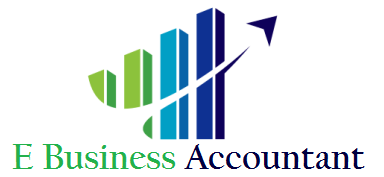Every business is striving to minimize costs and maximize profits due to the cutthroat competition that is being witnessed globally, which is the main barrier to entry to any organization. For example, such goals can be attained through working with hired accountants or the accounting department. Through their training, they possess expertise in financial assessment, ways to reduce expenses, and preparing for tax purposes that can go along with improving productivity and eliminating wastage. Though tied into the concept of a value chain, cost efficiency can be utilized by the accountants by analyzing the financial records and assessing their effectiveness to support the growth goals without wastage.
Here are listed several techniques of cost-saving that accountants from the organizational perspective can support:
1. Expense Auditing
Accountants in Gloucestershire can go through all the expenses incurred and figure out expenses that are not necessary, charges that are hidden, or subscriptions that are unnecessary but for which someone may have ignorantly subscribed several times. They also assist companies in deciphering which part of the expenses prove costly and where they stand the chance of saving some bucks. For instance, a firm may realize they are being billed for software licenses they require or can get other software for little or no charge.
2. Tax Efficiency
The application of an accountant is very important, especially when it comes to issues related to tax laws. It is always good for businesses, especially for those trying to legally avoid paying taxes as much as possible. Accountants can find deductions, credits, and allowable expenses that business organizations may fail to notice. Issues like the right choice of business form fall under tactical tax planning and help to save as much money as possible, which means increasing cash flow and profits under the current legislation.
3. Budget Optimization
If practicing accountants in Tewkesbury, they guide in improving budgets in line with the company’s operations. This way, it breaks the general budget into a specific one, providing an opportunity to enhance resource allocation. An accountant can identify which departments are demanding more or less funding by using historical records on ROI. For instance, while marketing may require an expanded budget because of its contribution to overall firm revenue, its administrative costs could be optimized.
4. Debt Management
When taking or managing debts, they can lead to substantial cost savings in the level of interest charged. This means that through professional review, a financier can reconsider existing liabilities/loans to either restructure debt or take up new debt at better conditions. However, they can also help businesses identify when it is financially viable to borrow to finance expansion as opposed to when it is more appropriate to use available cash flows to finance expansion instead of borrowing.
5. Cash Flow Management
The professional services of accountants help the business have a constant and stable source of cash to avoid instabilities in business operations. With records of receivables, payables, and inventory, they suggest ways to ensure money is supplied. It was revealed how cash flow projections highlight periods of low liquidity and show when demand is highest to seek growth. The inability to manage cash flows can lead to access to emergency loans, which often attract very high costs.
6. Vendor Negotiations
The analysis of financial records can help the accountants assist the business entities in bargaining for more favorable conditions for any offers or services provided by the suppliers and service providers. They assist in determining areas where savings can be had by group buying, early pay, or re-bidding service contracts. For example, lower supply chain costs or discounts for early payment may be a little, but they can represent significant cost savings as a bloc.
Final Thoughts
Hiring an accountant also is not just hiring someone who will ensure that all the financial regulations set out are followed to the letter – it opens up a can of worms of cost-cutting measures that can transform the economic fortune of a company. Smart accounting involves properly using accounting tools and tactics that assist businesses in managing their money, cutting unnecessary expenses, and enhancing overall workflow. The role of an accountant in a business is a value that pays off most of the time, establishing a financially strong organization that can withstand any economic storms. Entre firms may arrange strategic and constant financial direction to guarantee that their monetary management sustains continuous, adherent cost efficiency.

